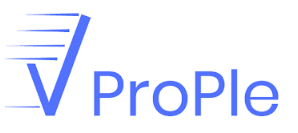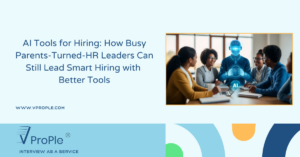This website use cookies to help you have a superior and more relevant browsing experience on the website.
Tag: Best interview as a service platform
Preparing Your Interview Panel: Best Practices for Outsourcing Interview Rounds.
Preparing Your Interview Panel: Discover 15 best practices to ensure quality, fairness, and business impact in outsourced interview models.
read moreThe Role of Unconscious Bias in Interviews and How Structured Panels Help
Unconscious bias in interviews can quietly influence hiring decisions. Discover how structured interview panels create fair, consistent, and evidence-based recruitment that strengthens diversity, quality, and long-term organizational success.
read moreAI Tools for Hiring: How Busy Parents‑Turned‑HR Leaders Can Still Lead Smart Hiring With Better Tools
AI Tools for Hiring: Smart Hiring for Parent HR Leaders: How Automation Makes Balance Possible?
read moreCore Pillars of IaaS: What are the 3 pillars that IAAS platforms should be based on?
Discover the 3 core pillars of iaas, process standardization, technology enablement, and governance, that drive scalable, fair, and high-quality hiring.
read moreBalancing Speed vs Quality: Interview Metrics Every TA Leader Should Track
Speed Vs. Quality: Track the right interview metrics to balance hiring speed and quality.
read moreWhy IaaS is becoming the go-to model for high-volume hiring in GCC & IT?
IaaS: Interview as a Service is transforming high-volume technical hiring in GCC and IT markets by delivering scalable, consistent, and high-quality interviews without slowing growth.
read moreHow Busy HR Teams Can Offload Interview Overload Without Losing Quality?
Interview Overload Without Losing Quality: Learn how HR teams can offload interview workload using structured interviews, trained assessors, and smart hiring design without compromising hiring outcomes.
read moreHow to Assess Soft Skills and Leadership Potential Even in Technical Roles?
A practical guide to assessing soft skills and leadership potential in technical roles through behavioral interviews and competency-based evaluation methods.
read moreWhy are IAAS platforms different from Recruitment companies?
Confused between Interview-as-a-Service and recruitment firms? Let’s breaks down scope, cost, and value to help you choose the right hiring model.
read moreCandidate Experience Matters: How to Maintain a Brand while Outsourcing Interviews
Candidate Experience Matters: How organizations preserve authenticity, culture, and candidate experience when RPO partners handle interviews.
read more











